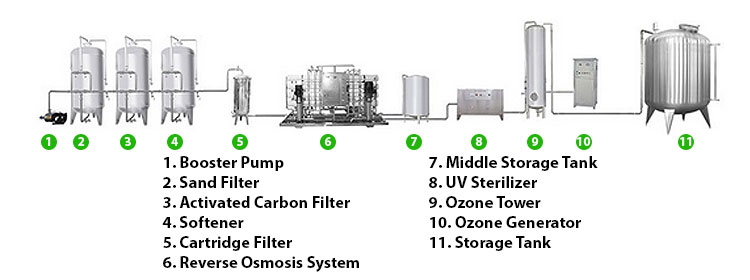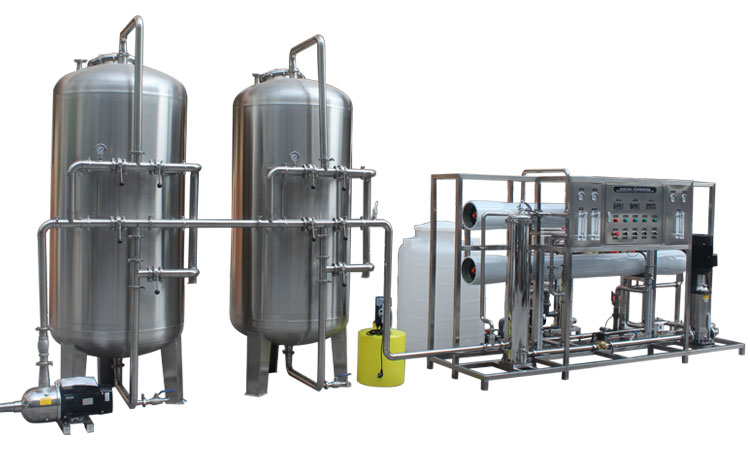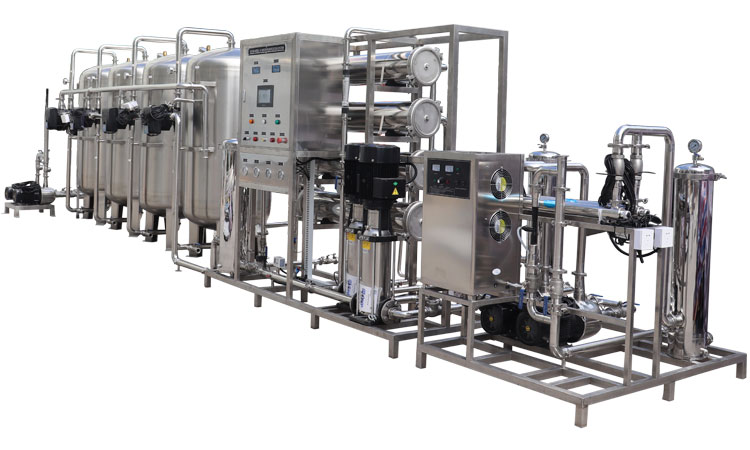Do drinking water filters remove minerals from water?
Filters can remove pollutants from water and improve water quality. However, many people are concerned about an important question: Do drinking water filters also remove beneficial minerals from water?
In this article, we will explore this issue in depth, analyze the effects of different types of filters on minerals in water, and explore how to retain beneficial minerals while ensuring water quality is safe.

What do minerals in water do?
Before discussing the role of filters, we first need to understand the types of minerals in water and their effects on human health. Natural drinking water usually contains a variety of minerals, including calcium, magnesium, potassium, sodium, etc. These minerals play an important role in human health:
1. Calcium: Contributes to the health of bones and teeth, and maintains normal heart, muscle and nerve function.
2. Magnesium: Participates in protein synthesis and energy metabolism, and helps maintain normal muscle and nerve function.
3. Potassium: Contributes to cell function and heart health, and maintains electrolyte balance in the body.
4. Sodium: Regulates water balance in the body and maintains normal nerve and muscle function.
These minerals are ingested through drinking water and food, and are essential for maintaining normal body function.
How do drinking water filters work?
Drinking water filters remove pollutants from water through different technical means. Common drinking water filter technologies include activated carbon filtration, reverse osmosis (RO), and ultrafiltration (UF). Each technology works differently and has different effects on minerals.
1. Activated carbon filtration: Activated carbon filters use the adsorption capacity of activated carbon to remove organic matter, residual chlorine, odors, and some heavy metals from water. The pore structure of activated carbon enables it to adsorb pollutants in the water, but has little effect on dissolved minerals such as calcium and magnesium. Therefore, activated carbon filters can retain most of the minerals in the water.
2. Reverse osmosis (RO): Reverse osmosis filters use semipermeable membranes to filter water molecules under high pressure to remove almost all soluble impurities, including salt, heavy metals, bacteria, and viruses. Because the pore size of the RO membrane is very small (about 0.0001 microns), it can remove most of the minerals in the water. This means that while reverse osmosis filters provide pure water, they also remove beneficial minerals.
3. Ultrafiltration (UF): Ultrafiltration filters filter suspended matter, bacteria, and some large molecular organic matter in water through membranes with larger pore sizes (about 0.01-0.1 microns). The pore size of the ultrafiltration membrane is large and cannot effectively remove dissolved minerals. Therefore, the ultrafiltration filter can retain most of the minerals in the water.

How effective is the filtering effect of drinking water filters on minerals?
Different types of drinking water filters have significantly different effects on the removal of minerals. Here are the specific effects of several common filters:
1. Activated carbon filter: It can remove residual chlorine, odor, organic matter and some heavy metals, but has little effect on dissolved minerals. Therefore, the water after using the activated carbon filter usually still retains most of the minerals such as calcium and magnesium.
2. Reverse osmosis filter: Due to its efficient filtering ability, the reverse osmosis filter can remove almost all dissolved minerals in the water. This means that the water provided by the reverse osmosis system is almost pure water and does not contain minerals. Therefore, the water filtered by reverse osmosis needs to be supplemented with minerals through diet or other means.
3. Ultrafiltration filter: It can remove suspended matter and bacteria in the water, but it has a poor effect on the removal of dissolved minerals. Therefore, the ultrafiltration filter can retain most of the minerals in the water and provide drinking water with a high mineral content.
How to retain minerals while purifying water?
When choosing and using drinking water filters, people often hope to remove harmful substances while retaining beneficial minerals.
Here are a few solutions:
1. Add minerals: For users who use reverse osmosis systems, you can consider adding minerals to the filtered water. There are special mineral addition devices and mineral filters on the market that can add necessary minerals such as calcium and magnesium to the purified water.
2. Choose the right filtration technology: If you are mainly concerned about residual chlorine, odor and organic contamination in the water, you can choose activated carbon or ultrafiltration filters, which have a better retention effect on minerals. For areas with good water quality, these two filtration technologies can retain minerals while providing safe drinking water.
3. Mix filters: In some cases, you can consider using a combination of multiple filters. For example, use an activated carbon filter to remove most organic matter and residual chlorine first, and then use an ultrafiltration filter to remove suspended matter and bacteria, thereby retaining minerals while providing high-quality drinking water.

Practical application cases and expert opinions
In order to better understand the impact of drinking water filters on minerals, we interviewed several users and water treatment experts who use different types of filters.
Case 1: Home use of activated carbon filter
Mr. Li, who lives in Beijing, chose an activated carbon filter for home drinking water treatment. Mr. Li said: "The activated carbon filter effectively removes residual chlorine and odor from the tap water, and the water tastes significantly better. I also learned that this filter does not remove minerals in the water, which makes me feel relieved."
Case 2: Using reverse osmosis filters in the office
A technology company installed a reverse osmosis water dispenser in its office building. Ms. Zhang, the head of the company, said: "The water quality in the area where our company is located is poor, with high levels of heavy metals and pollutants. The reverse osmosis system can provide very pure water, which is more reassuring for employees to drink. However, we also provide mineral supplements next to the water dispenser to ensure that everyone can consume enough minerals."
Expert opinion
Dr. Wang, a water treatment expert, pointed out: "Although reverse osmosis technology can remove almost all impurities in the water, it also removes beneficial minerals. For users who drink reverse osmosis water for a long time, it is recommended to supplement minerals through diet or supplements. For areas with better water quality, activated carbon and ultrafiltration filters are more suitable choices, which can purify water quality and retain necessary minerals."




